Text
On Rap & Consumerism
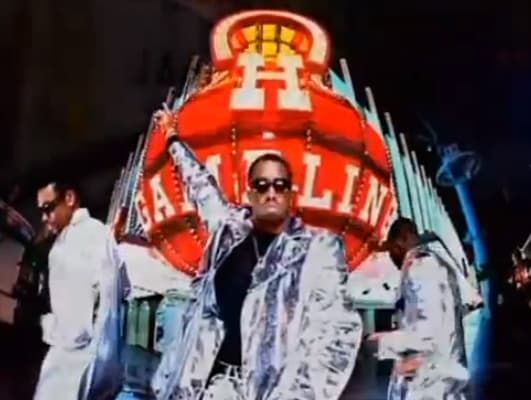
I don’t know when it happened. My best guess is that it began sometime around 2016. The year previous had sort of set the ball rolling, but we didn’t get a clear picture of what was to come until 2016, so let’s keep it to that one.
The “it” I’m referring to here is not easily quantifiable. I’m largely speaking about the mass commodification and subsequent exploitation of what we know as “rap music,” but I’m also speaking about something more intangible; a steadily more pervasive attitude, a shift in the way rap is positioned in the broader cultural landscape. It’s a hard notion to pin down, mostly because rap has been commodified and exploited since its inception. But what was different was the lack of success the exploitation had. The whoring out of rap used to be a joke. Something white executives cooked up in their boardrooms, chalked full of outdated language and overtly racist undertones. It still is, mind you, but this time it worked. The Vanilla Ices and MC Hammers are not only topping the charts but enjoying lasting success (or at least as much lasting success as one can reasonably expect).
At one time – a time not too long ago – rap operated on an insular plane. The Grammys for Rap were not televised. The big magazines only wrote about the biggest stars. There was no place for a B-tier rapper in popular mainstream culture, and that was fine. Goodie Mob didn’t need to be represented at the Grammys. We had the BET Awards; we had the Source Awards. There was no real proclivity to insert this culture into a space where it was unwanted. The genre and the culture lived within their own bounds, largely unseen to anyone who wasn’t looking for it.
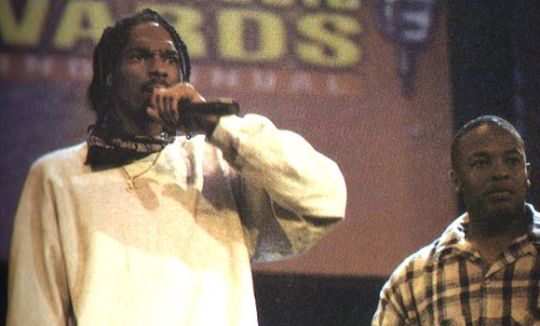
But that didn’t last forever. As listeners of the genre grew up and slid themselves into the very boardrooms where terms like “hippity hop” were doled out incessantly, the world began to open its doors to rap. Eminem starred in a blockbuster film about rap battles, Three 6 Mafia won an Oscar. The mainstream was now open to more than just the most accessible players. There was a space for rap that explicitly encoded murder, violence, drugs, and sex within its terms. The sudden exposure shocked the frail of heart. Picket signs outside venues. Tipper Gore. You know the story, I don’t need to spell it out for you, we’ve all heard “Cleaning out my Closet.”
And thus, hip hop as a commodity was born. Rappers were making big money, bigger than ever before. But still, rap could breathe. It was still beholden to the ideals it was founded upon. Ghostwriting was a deadly sin and biting someone’s style would get you pressed up at an industry event faster than you could get your South Pole jeans on. Hip hop was living and breathing within mainstream popular culture, but it was doing so on undeniably hip hop terms. The subsequent clash of cultures made for some of the genre’s most defining moments; Ol’ Dirty Bastard cashing his welfare check in a limo became the predominant positioning rap took against the very people consuming it. Crass indifference and getting-kicked-out-of-the-department-store energy.
Something so potent was, of course, volatile. For the next 20 years, the genre would consistently be at risk of either falling back into the darkness or sliding too far the other way and becoming pop music.
Of course, we all know which way the pendulum ended up swinging. Lil Pump and Smokepurrp were evidence enough that rap was about to skyrocket. There were no more reservations about the culture or its effect on kids. Soccer moms sang along to Lil Yachty’s Columbine bars only 13 years after Eminem was universally shamed for the same thing. The genre grew bigger and bigger before finally culminating in a guitar-strumming, face-tattoo wearing physical embodiment of cultural appropriation; a frat-boy with a candy-painted heart who stole from the Chief Keefs and gave to the Justin Biebers.

So, what does this mean for rap? I’m not sure, honestly. Though I will say that there is no reason to worry. The phenomena hip hop is experiencing is certainly not a new one. Every grassroots genre eventually becomes fodder for the insatiable masses. Sooner or later they’ll devour it, leaving a mangled carcass where a stallion once stood. But that doesn’t mean it’s the end, in fact, it’s quite the opposite. As we saw with rock in the 80s and 90s, underground movements rise from the ashes of consumerist exploitation. Rap has always had a very strong underground, but it will only get stronger when the tide begins to turn on rap as society’s dominant musical flavour.
In the meantime, try not to get too hung up on things. Ferociously debating with rap casuals will only lead to heartbreak and alienation. You don’t need to spam every Tyler, the Creator fan with your list of obscure Bandcamp mixtapes. Rap will fall out of public favour all on its own and will likely be replaced with whatever new thing label executives and Spotify playlist curators can get their hands on. Until then, just sit back and mindlessly bump the new Juice WRLD record. There’s not much else you can do anyway.
0 notes
Text
Earl Sweatshirt - Feet of Clay (ALBUM REVIEW)
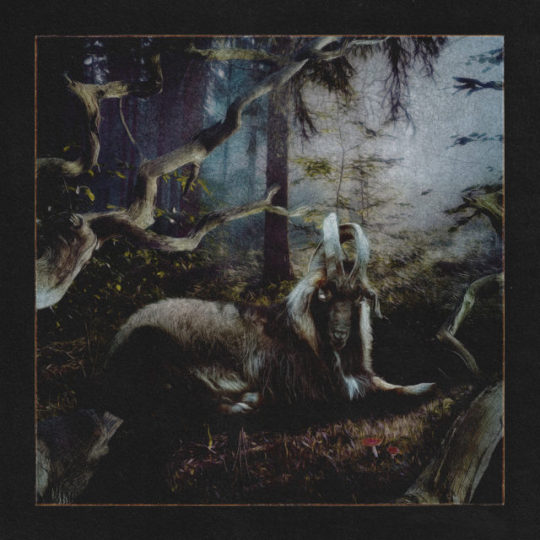
Score: 10/10
There is a brief, but not insignificant history of surrealism in rap. MCs in New York and Los Angeles were especially good at lacing their tracks with vaguely unsettling sounds and lyrical motifs that forced the listener to wonder if what they were listening to was true or not. An early example is Ice T’s 1987 breakthrough single 6 ’N The Mornin’, but you could also make a solid argument for Schoolly D being the first to really trend into surreality. It doesn’t matter, though. The point is that Feet of Clay is not without precedent.
Earl Sweatshirt has been around for a minute. He makes up one third of the “Big 3” Odd Future alumni, alongside former group-mates Frank Ocean and Tyler, The Creator. He’s an MC and a producer. He’s currently a topic of debate among rap fans, and for good reason, too. Earl is a challenging artist. He tests the limits of the work’s very musicality, fundamentally changing the record’s lyricism and tonality. Samples are stretched out, pitched down, and ran through vintage filters before being spat back out the other side a mangled and mortifying mess. His lyrics are also uncomfortably forthcoming, often shrouded in effects and mixing choices that rival Daniel Johnston in terms of pure fuzz and melancholy.
This is naturally polarizing. Some criticize the record’s unconventional sonics and bare-bones, minimalist lyrics, while others are absolutely enthralled with it. It makes sense. After all, not everybody is going to enjoy the sounds of disembodied samples and trodding drums complete with the world’s saddest man rapping over them.
In a way, Earl’s time with Odd Future has cursed him with name recognition. Had he come up as part of an obscure, underground, lo-fi rap collective - perhaps not dissimilar to the sLums collective he has recently taken a liking to - he would be received a lot differently. A very large part of his fanbase comes directly from those Odd Future ties. This leads to a lot of confusion and negative reception as fans with no context for lo-fi noise rap are left to wonder why their favourite rapper is making his music sound bad on purpose.

Feet of Clay is a firm confirmation that Earl Sweatshirt has no interest in living up to anyone’s expectations. We saw this defiance on Some Rap Songs in 2018, but it was hard to say whether he would stick with this new direction or trend back towards the safe. It seems like Earl has been working towards making records like this since the release of I Don’t Like Shit, I Don’t Go Outside.” The 2015 record’s plucky beats, shoddy mixing, and distant vocal recordings were clearly the foundation for what was later to come. Solace, a single-track EP that Earl released that same year delved even further into the sound.
But even then, I Don’t Like Shit and Solace never reached the murky depths of Feet of Clay or Some Rap Songs. There was still a certain element of convention, a presumption of professionalism that has kind of gone out the window. It’s probably for the best that Earl abandoned all notions of what a rap song should sound like, as it’s made for some of his most compelling music, and some of the best music released in recent years.
Feet of Clay opens with the moody and simplistic 74, spitting hyper-confessional bars over a piano beat as thick as mud. Earl spoke about the track with Apple Music.
“I’m still on this brevity pack,” said Earl. “So I like sitting down to play people this and having it be the first one, because it’s just like… we doing it. We here to listen to these raps. It’s going up.”
From 74, Earl wastes now time ushering us into East, the track that no one understood but everyone had an opinion on. The cartoonish, accordion driven beat is funny, but not the way most people took it. There’s no need to laugh at Earl, he understands that this is not traditionally “good” music. He’s approaching it as an iconoclast, creating dissonance and barbarity through repetition. The lyrics are as sharp as ever, and the production fits with the goofy-but-slightly-haunting thread that Earl has sewn throughout his discography.
Other standouts on this record are MTOMB and the Mavi-assisted EL TORO COMBO MEAL. Earl and his collaborators create Lynchian soundscapes, dissonant instrumentals fuelled by nightmarish energy assist Earl in waxing over his fears and his shortcomings. The details and textures in the beats give us the feeling that something is not quite right, but we can’t put our finger on what it is. It sounds like a rap song, but something is off. This contrasts beautifully with Earl’s classicist approach to writing. He uses traditional patterns, but doesn’t shy away from breaking the rules and bending the form to suit his needs.
Earl is operating at a level that seems to go over some heads, and the vitriol he receives for breaking these established barriers only further proves that he’s ahead of his time. I Don’t Like Shit received many of the same complaints that his recent work gets, and as we now know, that record went on to inspire an entire East Coast rap movement that has begun to flourish in big ways.
To put it bluntly, we don’t deserve Earl Sweatshirt.
0 notes
Text
Kanye West - Jesus is King (ALBUM REVIEW)
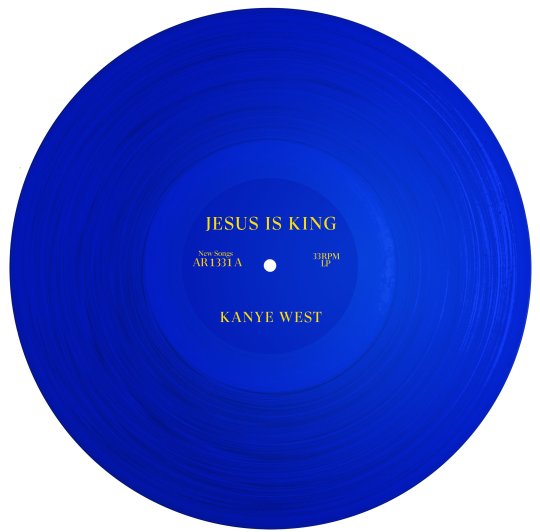
Kyle Mantha | Score: 8/10
Catharsis swims in the light. Crescendoing over the moon is a definitive lightning strike, a Man of utmost creativity. As Thompson would put it: “Too weird to live and too rare to die.” In the night he is striking, under the sun he is a shining emblem. At least that’s been the narrative for the last decade and a half. The man with his finger constantly on the pulse, eternally in-touch, had now found himself falling. Falling out of favour, out of conversation, out of himself.
So what did he do? What is any man to do when he finds himself past his peak? Weak men let it consume them and drive them to madness. Strong men accept it and bow out while the going is still good. But what happens when a man who has never, ever, bowed out in his entire life is asked to step down from the pedestal?
This particular Man chose to adapt. He lost the bombast, the experimentation. He let the fire dim just a little bit, if only to make his guests more comfortable. The Man who once occupied the crystal palace now sat comfortably in a lakeside cottage, content with spreading his ideas and his knowledge to those who seek it. He found faith, he almost let it cure him, but not quite. He spun a new collection. He made it home-grown, soft, warm, inviting. He ran a million clocks to midnight, just as he always had.
The Man had run his voice hoarse many times over, desperately trying to prove himself, appearing as a stark raving madman to most people, but that too ceased. He reached security, a family that would survive him. Lineage that would carry the tradition of forward-thinking innovation and abject lunacy existing side by side as only they can. There was no more need to prove anything, the world knew what they knew and The Man knew what he knew.
Some folks missed The Man’s insatiable ear and relentless hunger. Others hated him just as much as they did when he first showed his face. Some were able to see things for what they were. The smartest ones knew that it was all still there, so long as you knew what to listen for. The ego now rested comfortably in humility. The power The Man once wielded was relinquished to a higher entity. The perspective had shifted, surely, but the elements had not changed. The work was informed by the same things it always had been, but The Man was no longer interested in letting those things destroy him. He was no longer interested in shooting himself in the foot in exchange for thunderous applause. He had grown sick for a time, and he was still arguably coming out of it. He could no longer exist as they wanted him to. Ironically, not being able to exist as others wanted him to was what made them love The Man in the first place. The trait that made him revered became his downfall.
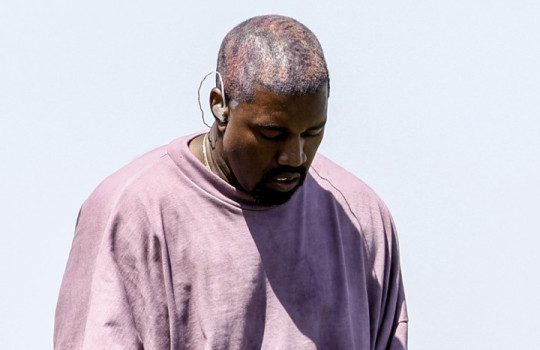
Innovation has always been the mode of Kanye West. The Chicago-born artist has always attempted to push the envelope, chart new sonic territory, and build worlds that no one else could. He combined wit, social commentary, and stunning confessionals with the fervor of a deranged scientist. On stage and in interviews, he assumed a role similar to that of Bob Kaufman standing on tables in coffee shops delivering improvised poetry.
Today, there is less of that. While 2018’s Ye marked the beginning of Kanye’s tonal shift, Jesus is King has firmly cemented it. What would normally be a grandiose, maximalist affair has been replaced with a warm, fuzzy, honest, and slightly lo-fi collection of songs that serve to demonstrate Kanye’s salvation. It’s an incredibly honest look into a man who has recently found faith, even if Kanye is unable to properly articulate his situation lyrically at times. This isn’t a knock on the record. West’s genuine conflict between the inherent humility of Christ and the mad ego-ism that made him a star is incredibly compelling. Hearing Kanye grapple with the opposing ideas of being a man of God and being a man of fame make for a more complex piece of work than people are letting on. While Jesus is King is fundamentally a gospel record, Kanye doesn’t hold back on criticism of organized religion. On Follow God he decries the manipulative tactics many Christians use to silence others, with his own father serving as an example. He continues this lyrical trend on Hands On, claiming that, despite his faith, Christians are the “first to judge” him.
Normally, talking about public perception in reviews is cumbersome. But with Kanye West, it’s almost necessary. The reception for this album has been less than stellar, at least in terms of fan response. Cries of “boring”, and “corny”, and “trash” have been volleyed over from the message boards and Rap Twitter, but a lot is being missed here. The expectation thus far has been that a Kanye album will be massive, that it will sound massive. Even Ye, which was significantly more understated than West’s previous work, still had the context of Kanye’s outlandish media comments to make it feel like an event. Jesus is King has none of that, and it’s throwing people for a loop. There are no left-field beat-switches on here, no tastefully distorted and auto-tuned vocal performances. The beats don’t knock, they float, and the lyrics aren’t particularly deep or layered. Kanye delivers his message, plain and simple.
These are all good things. Kanye can’t be the mad scientist forever. He has assumed his new position as a sort of elder statesman, reigning over an ungrateful kingdom. He has nothing left to prove. He’s made every possible move he could make, he’s used every synth patch in his library. The bright side is that Kanye West is still here, still creating. He may be less antagonistic, but even maniacal geniuses need to settle down sooner or later.
0 notes